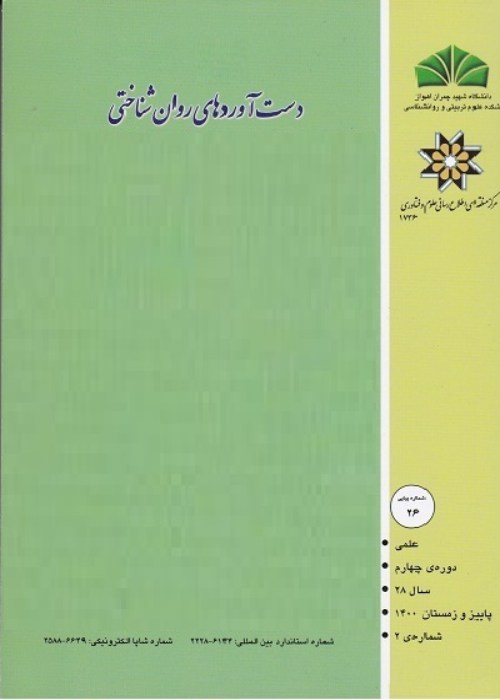Model of Academic Engagement Based on Psychological Capital with the Mediating of Self-Determination
In the last two decades, the academic conflict has attracted the attention of researchers and educators because of its comprehensiveness in describing students 'motivation and learning, as well as a strong predictor of students' performance, progress, and success in school. There are many different definitions of academic conflict, with some researchers considering conflict as a process while others have conceptualized it as an outcome. The framework of student achievement blueprints includes several identified personality and psychological elements that potentially influence student achievement; In this regard, we can refer to psychological capital and self-determination. The aim of the present study was a model of academic engagement based on psychological capital mediated by self-determination.
This research is applied in terms of purpose and correlational in terms of the descriptive method. The study population consists of all twelfth-grade female students in Tehran province in the academic year 2009-2010. The sample consisted of 305 twelfth-grade female students in Robat Karim and Parand who were selected by multi-stage sampling. Students answered the questionnaires on academic engagement (Rio, 2013), psychological capital (Lutans et al., 2007), and self-determination (Ryan and Desi, 2000). After collecting the data, they were analyzed using Spss-24 and Amos-21 software and Pearson correlation coefficient and structural equations.
The assumed model was fitting in the research community. The results of the analysis showed that the mediating role of self-determination in the relationship between psychological capital and academic conflict is positive and significant and the proposed model explains 33% of the variance of students' academic conflict. The research findings showed that psychological capital and self-determination, directly and indirectly, predict 33% of the variance of academic engagement. Therefore, it can be concluded that psychological capital and academic engagement have a mutual effect, and in other words, a causality and circular relationship can be considered between psychological capital and academic engagement.
Based on the research findings, it was found that the effect of psychological capital is more indirect and self-determining than direct. As a result, students' self-determination and academic engagement increase with increasing psychological capital. Psychological capital facilitates the processes of being required to pay attention, interpret, and maintain positive and constructive emotions in interaction and participation with educational environments due to positive cognitive evaluation of events, which can lead to more involvement with materials. The lesson is to act at the optimal level and increase performance. In fact, people with higher self-efficacy use study and learning strategies more effectively to achieve the desired result, these people use cognitive and metacognitive strategies more, and in educational activities with planning Purposeful and comprehensive effort, overcome academic problems and challenges.
- حق عضویت دریافتی صرف حمایت از نشریات عضو و نگهداری، تکمیل و توسعه مگیران میشود.
- پرداخت حق اشتراک و دانلود مقالات اجازه بازنشر آن در سایر رسانههای چاپی و دیجیتال را به کاربر نمیدهد.


